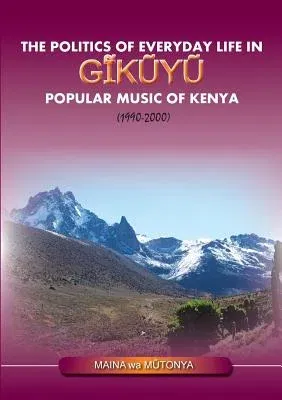Maina Wa Mutonya
(Author)The Politics of Everyday Life in Gikuyu Popular Musice of Kenya 1990-2000Paperback, 29 December 2013

Qty
1
Turbo
Ships in 2 - 3 days
In Stock
Free Delivery
Cash on Delivery
15 Days
Free Returns
Secure Checkout
Print Length
186 pages
Language
English
Publisher
Twaweza Communications
Date Published
29 Dec 2013
ISBN-10
9966028447
ISBN-13
9789966028440
Description
Product Details
Author:
Book Format:
Paperback
Country of Origin:
US
Date Published:
29 December 2013
Dimensions:
21.01 x
14.81 x
1.09 cm
Genre:
African
ISBN-10:
9966028447
ISBN-13:
9789966028440
Language:
English
Pages:
186
Publisher:
Weight:
249.48 gm

